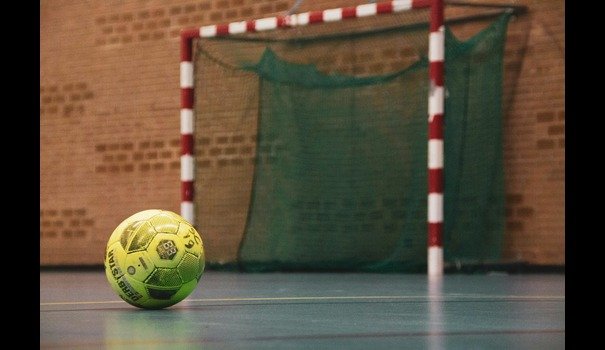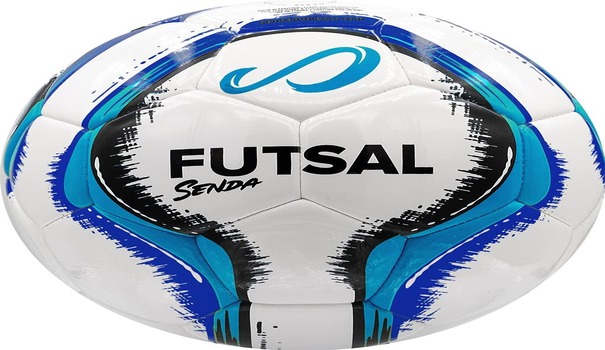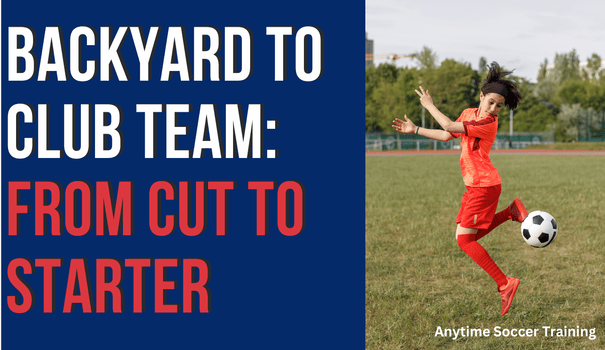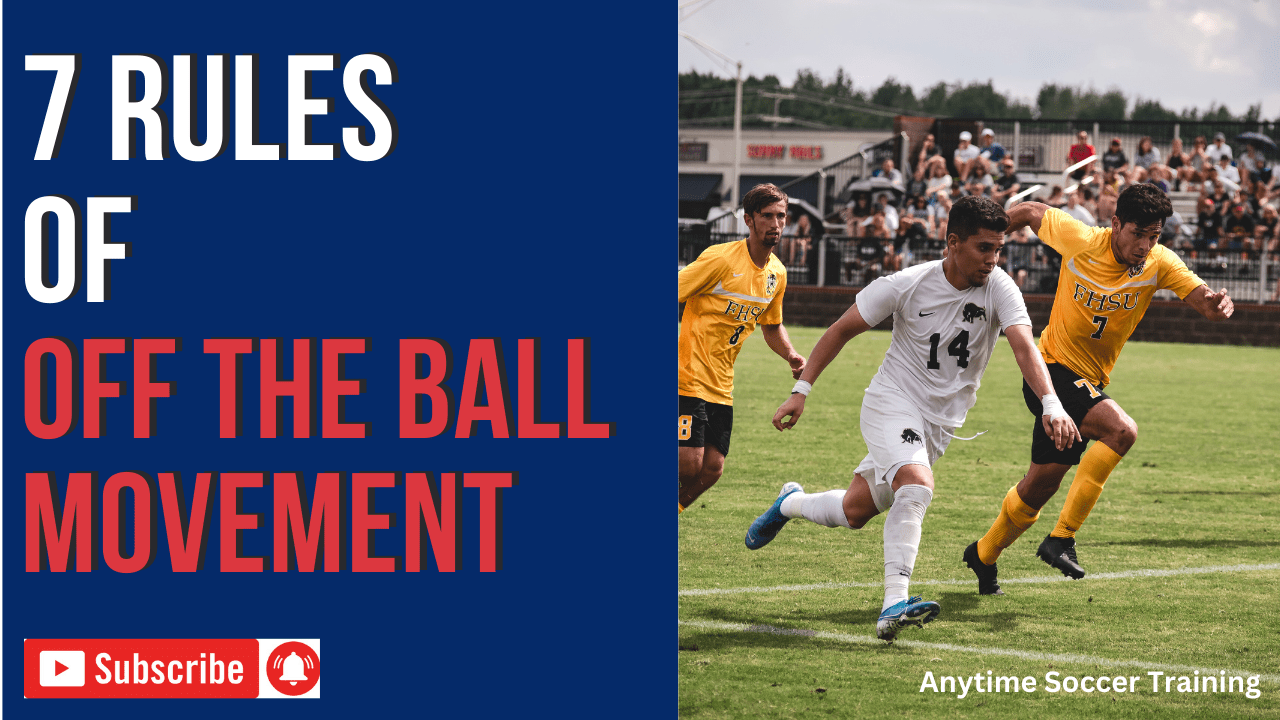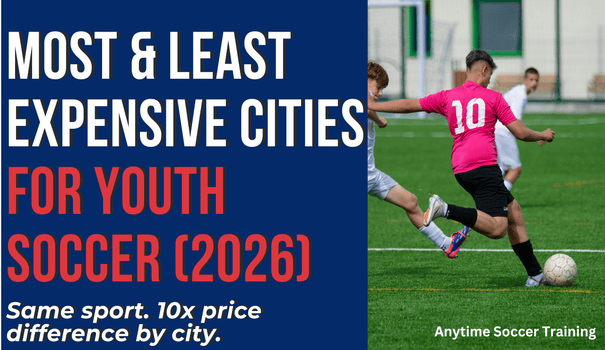
Playing Futsal, a fast-paced indoor version of soccer, is one of the most effective ways to train and become a better soccer player.
Futsal is not as popular as the beautiful game, and it does not get the same type of appreciation. However, many of the world’s best pro soccer players developed their talent by playing Futsal for hours and hours throughout their childhood.
Futsal was first played in Uruguay in 1930. The sport’s origins can be traced back to Montevideo, where it was initially created as a version of soccer suitable for indoor facilities.
This article will explain everything you need to know about Futsal for youth soccer players.
Image by Pascal Swier
The Origins of Futsal
Futsal began in South America almost a century ago, in 1930, and since then, it has evolved from a local pastime to a global competitive sport. The game began specifically in Uruguay when Juan Carlos Ceriani created an indoor football competition for the YMCA, which eventually became known as Futsal.
Futsal is a very fast-paced game that requires sharp technical ball control skills, quick reflexes, fast decision-making, and the ability to remain calm under pressure.
Futsal is less tactical than the outdoor game, however, there are a lot more touches on the ball and it is a great skill developer.
Many of the world’s best players grew up playing a lot of Futsal and barefoot a lot of the time. Some players that improved their skill development by playing Futsal include the following:
- Lionel Messi
- Cristiano Ronaldo
- Pele
- Maradona
- Neymar
- Ronaldinho
- Iniesta
- Xavi
Benefits of Futsal Training: The Key to Skill and Player Development
Futsal is an action-packed, smaller variation of the traditional game that is played indoors, and it has many transferable skills, making it an excellent training tool. Whether you are a long-time soccer fan or a new fan, everybody knows Brazil is one of the biggest football countries and is known for developing new talent every year.
One major reason why Brazil develops so much talent is because they spend a lot of time playing unstructured games, such as Futsal, all throughout their childhood. These hours and hours of playing Futsal, often barefoot, give them many opportunities to improve their touch and decision-making skills by simply playing the game and learning through experience and repetition.
While many players learn more when getting coached, it is important never to forget the power of simply playing the game and learning by doing. When youth players play the game, they have the most fun, and that is also when they learn the most and can tap into their innate creativity and talent.
Kids learn more when you let them play instead of telling them what you want them to do.
Here is a list of the major benefits of playing Futsal:
- Improves soccer-specific cardio and fitness
- Improves decision-making and fast-thinking skills
- Enhances speed of play and reaction time
- Improves technical skill, ball mastery, and close ball control skills
- Improves overall soccer skills
- Enhances power, since a slightly heavier ball is used
- Promotes accurate and quick passing
- Promote close ball control
- Players get a lot more touches on the ball
- It is fun!!
How to Incorporate Futsal Training into Regular Soccer Practice
Although playing Futsal has many benefits and is a great training tool, it cannot and should not replace regular team training. The traditional game requires much more tactical understanding, which should not be neglected.
Related: Why My Son Plays Futsal
Futsal is an excellent way to help players become better technical and better at controlling the ball, but it cannot replace the tactical understanding needed to succeed during a full game. With that being said, players should be encouraged to join a local futsal league or play Futsal in pick-up games as much as possible when they are away from team training.
It is advised to play Futsal all throughout the year, but it may be more beneficial to play Futsal during the winter months since these months are usually less packed with team training due to the weather and field conditions.
Aside from playing Futsal during the preseason and postseason, playing Futsal once or twice a week during the season can be very beneficial, if your schedule permits. Although Futsal is useful, you also don’t want to be overtraining by doing too many team training and futsal sessions in one week, because that may lead to burnout or overtraining.
You can also always gather friends and start playing a pick-up futsal or small-sided game indoors, outdoors, or in an actual futsal court.
Futsal Equipment, What You Actually Need
When my kids started, this was my first question: what is essential and what is not. Here’s what I learned and recommend.
Futsal ball – Recommendation Buy Now
A smaller, heavier, low-bounce ball keeps play on the floor and rewards control. Sizes, size 3 for younger kids, size 4 for older youth and teens.
Recommended, Official size 3 or size 4 futsal ball.
Footwear, what I recommend – Buy Now
Skip cleats. Choose flat, non-marking indoor shoes with solid grip and a snug, stable feel.
Other Top picks,
- Nike React Gato, excellent cushioning and grip for fast stops and starts. Buy Now
- Adidas Samba Classic, timeless, durable, and budget-friendly. Buy Now
- Adidas Unisex, a futsal favorite for comfort and court feel. Buy Now
Shin guards – Recommendation Buy Now
Lightweight, comfortable guards that fit securely under long socks.
Optional extras
- Goalkeeper gloves – Recommendation
- Knee pads for keepers – Recommendation
- Gym bag to keep ball, shoes, guards, socks, and – Recommendation
- Water bottle together – Recommendation
Pro tip, start with the ball and shoes, add the rest as your player commits.
Futsal FAQs, Fast Answers
- How long is a futsal game, two 20-minute halves with a stopped clock for dead balls?
- Is there offside? No, which encourages creative attacking runs.
- Goal size, 10 feet wide by 6.5 feet high.
- Ball size, size 4 for most youth, size 3 for younger players, both low-bounce.
- Is futsal good training for soccer? Yes, it builds quick decisions, close control, vision, and confiden
Conclusion
In conclusion, Futsal is a great training tool for youth players, although any player of any level can benefit greatly. Youth players need to spend as much time playing the game and touching the ball as possible, which is precisely what Futsal is perfect for.
The traditional game requires more tactical understanding, which players will learn more about as they get older and understand the game more. On the other hand, Futsal is a lot more technical, and this is perfect for younger players who are still trying to master the ball and develop their technical skills.
About the Art of Football
The Art of Football is a blog site and private training program designed to help footballers reach
new levels of performance with mental training, athleticism, lifestyle tips, and more. Football is a form of art and one of the best ways to better be able to express yourself and your talents and get “in the zone” or in a “flow state” is by playing the game a lot and variations of the game, such as Futsal.
Skill Shark – Athlete Evaluations
Join thousands of coaches and evaluators around the world who have now streamlined their evaluations.
